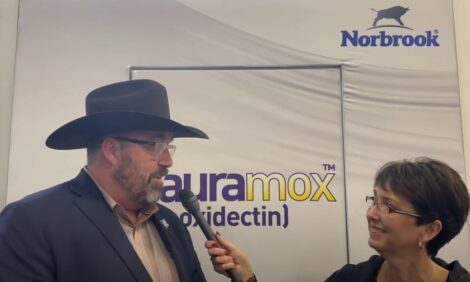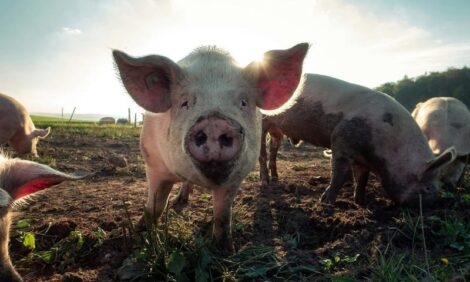



Global quest for vaccine to cut methane in cattle
Scientists are to search for a proof-of-concept vaccine that can cut methane emissions in cattle.Supported by $9.4 million from the Bezos Earth Fund and led by researchers at The Pirbright Institute and the Royal Veterinary College (RVC), an international consortium will seek to build scientific evidence for a vaccine that can reduce the number and activity of methane-producing microbes in a cow’s stomach.
According to the UN Environment Programme, livestock emissions from manure and gastroenteric releases account for almost a third of human-caused global methane emissions.
If successful, using a vaccine in cattle to reduce their methane emissions would significantly advance global greenhouse gas reduction efforts. Livestock is a primary source of methane, a particularly potent greenhouse gas.
According to the Global Methane Hub, reducing methane emissions by 45% this decade could deliver a cooling effect of approximately 0.3°C by 2040. Livestock alone is responsible for nearly half of all food system emissions, which constitute about a third of global greenhouse gas emissions.
The three-year study with AgResearch – the New Zealand institute dedicated to agricultural innovation - aims to build on work by the Global Methane Hub which found knowledge and technical gaps were limiting progress in the development of methanogen vaccines.
Professor John Hammond, Director of Research at The Pirbright Institute, said: “To cut global methane emissions by 30%, low frequency interventions are essential. Vaccination is a widely accepted farming practice that is auditable and can be used in combination with other strategies, such as chemical inhibition, selection for low methane genetics, or early-life interventions to permanently alter microbiome composition in livestock.”
The team of researchers say the proof-of-concept project will allow them to explore mechanisms for antibody-driven inhibition of methanogen growth, establishing the number and characteristics of methanogen antigens which trigger an immune response, and understanding the number and antigen binding strength of antibodies.
Dr Neil Wedlock, Principal Scientist, AgResearch, said: “We are excited to collaborate with The Pirbright Institute and the Bezos Earth Fund to address this pressing challenge. Our teams are recognised leaders in studying methanogen biology and driving approaches to elicit vaccine driven antibody mediated responses in ruminants to limit methanogen growth and methane production.”
Dr Andrew Steer, President & CEO of the Bezos Earth Fund, said: "Vaccines have proven to be an incredibly cost-effective way to deliver global health solutions. If we can apply this approach to vaccinate cattle and reduce emissions, the scalability and impact could be phenomenal. This grant is a moonshot for proof-of-concept – risky bets like this are essential to tackling the climate crisis."
Dirk Werling, Professor of Molecular Immunology at the RVC, said: “I am extremely proud of being part of this project, which brings together colleagues working in different fields of animal health in a very unique way. I believe that the funding we obtained from Bezos Earth Fund will enable us to perform research on a topic which affects us all, global warming, but in a way that both animals and humans benefit from it.”
The study aims to characterise, modify, and combine antibodies to mimic the type of antibody response a vaccine that elicits function in cattle would need to produce, helping humanity understand the feasibility of future vaccine delivery.


